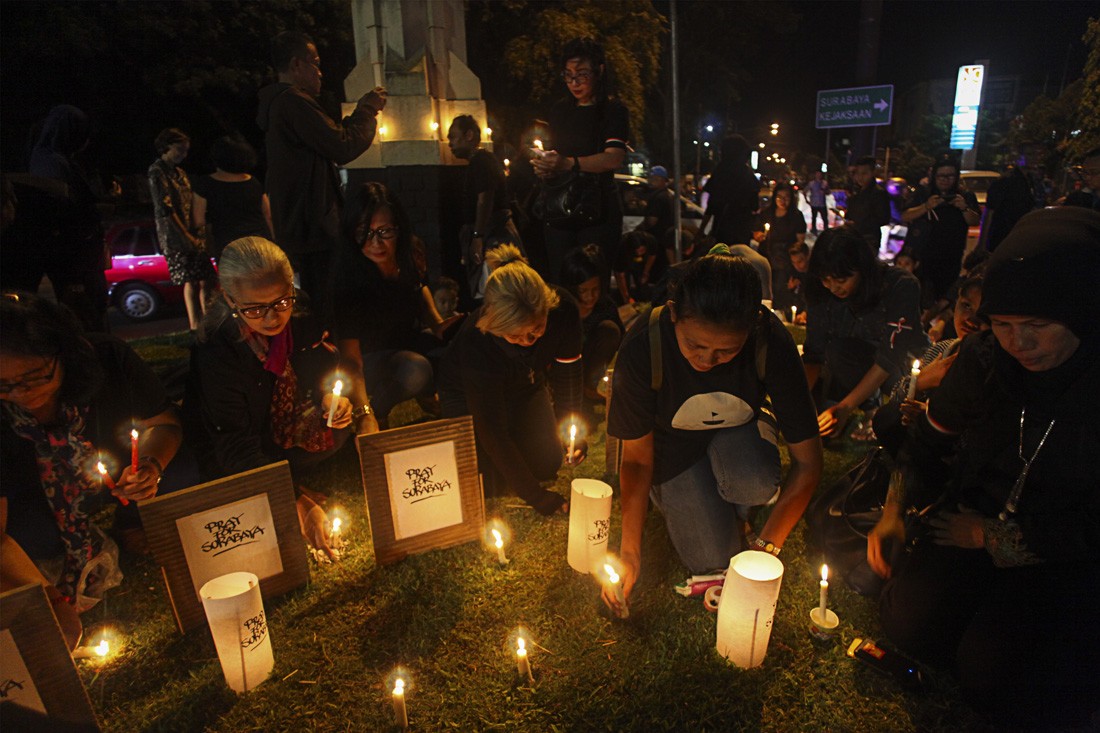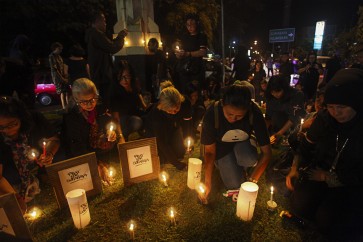Popular Reads
Top Results
Can't find what you're looking for?
View all search resultsPopular Reads
Top Results
Can't find what you're looking for?
View all search resultsSupporting neglected victims of terrorism
Victims of crime, including terrorism, should not be subject to secondary victimization that usually occurs not as a direct result of the criminal act causing harm to the victim but through the response of institutions and individuals to the victim. #opinion
Change text size
Gift Premium Articles
to Anyone
T
error attacks occur everywhere in the world, the latest in New Zealand on March 15 and in Sri Lanka on April 21, killing hundreds of victims. However, law enforcers as well as the public pay attention mostly to the offenders, not to the victims of terrorism.
Of course people want to know who the criminals are — at the risk of them gaining publicity. The most horrific example was the attack on two churches in Christchurch, New Zealand, which killed 50 people and injured many others. Prime Minister Jacinda Ardern rightly refused to name the perpetrator who had filmed his crime and shared it in real time.
Far fewer people continue to be concerned with the victims and survivors, even though the death toll in Sri Lanka reached over 200, not to mention those severely injured; all eyes focused mainly on the perpetrators, the Islamic State group or anyone claiming responsibility for the terror attack.
Likewise in Indonesia, fewer people would recall the situation of victims of the church bombings in Surabaya just last year on May 13 and 14, 2018, the Jl. Thamrin explosions in Jakarta in 2016 and at the police station in Pekanbaru last year, etc.
Apart from direct victims, there are also secondary, indirect victims and potential victims of terrorism. Secondary victims of terrorism are the next of kin or dependents of a direct victim of terrorism. Indirect victims are individuals who have suffered severe physical or psychological injury as the indirect result of an act of terrorism, according to a 2015 report of the United Nations Office on Drugs and Crime (UNODC).
Victims of crime, including terrorism, should not be subject to secondary victimization that usually occurs not as a direct result of the criminal act causing harm to the victim but through the response of institutions and individuals to the victim.
Distinct phases follow terrorist attacks, as noted in a paper on enhancing the resilience of terrorist attack victims last year by Josie CM Netten and Maarten Van Donk. First, the impact phase: the dramatic incident takes place, wreaking havoc, death, destruction and loss. Victims and society are bewildered and are in shock.


















